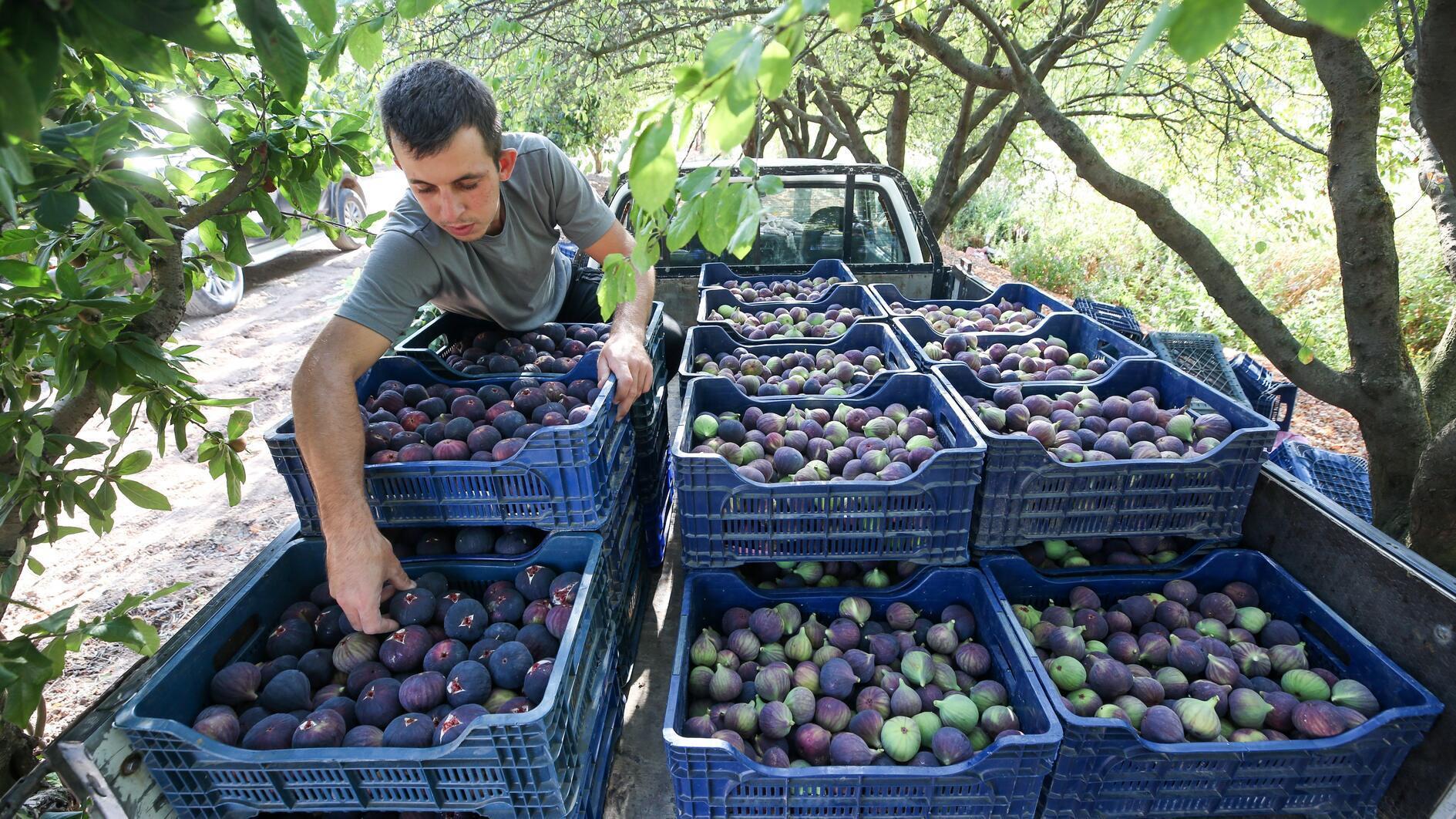
Bursa's black figs, which received geographical recognition from the European Union in September, are readied for export to Europe following their harvest in early to mid-August, depending on the seasonal temperatures every year.
Accounting for 90 percent of Türkiye's production, black figs originally gained international recognition following the visit of the then Queen of England, Elizabeth II, to the western province in 2008.
Upon her return to England, the Queen advised Kate Middleton, who was pregnant at the time, to eat the black figs that had been served to her back in Bursa as a remedy for morning sickness.
Therefore, Bursa’s figs became a staple on the tables of Buckingham Palace, marking the beginning of the export journey of these goluptious products.
Following this development, the western city produced over 28,000 tons of figs, of which 60 to 70 percent were shipped overseas in their fresh forms in 2023.
Recognized for its color, flavor, scent, size and durability, Bursa’s figs bring approximately $45 million to $50 million in foreign exchange annually for Türkiye at present.
Delivered in crates from the gardens to exporting firms, the black figs are being exported to Norway, Sweden, Hong Kong, Germany, the Netherlands, France, Italy and England.
Sait Kaya, who cultivates figs in the Mudanya district of the province, attributed the high demand for the product to its long shelf life, stating, “Figs last longer; I'm not sure if that's due to the soil or the air here.”
Shedding light on the cultivation process, Kaya noted that they fertilize and prune the fig trees in February, approximately six months before the harvest season.
“In actuality, fig cultivation is nice and simple. However, the season has a major impact on the products. June's weather being hot and humid and rainy at the same time results in the figs falling off abruptly,” he explained.
Global warming has a major impact in this sense, according to Kaya, who mentioned that the yield gradually declines every year despite the growing number of figs.
“I had 200 fig trees two years ago, 19 tons out of which were exported. This year, with over 300 trees, I expect the yield to be between 16 and 17 tons, although I initially anticipated it would be around 30 tons,” he noted.
Kaya underlined that they struggle with finding a proper solution to this ongoing issue as they are unable to apply medicine due to these fruits of exceptional taste being entirely natural.